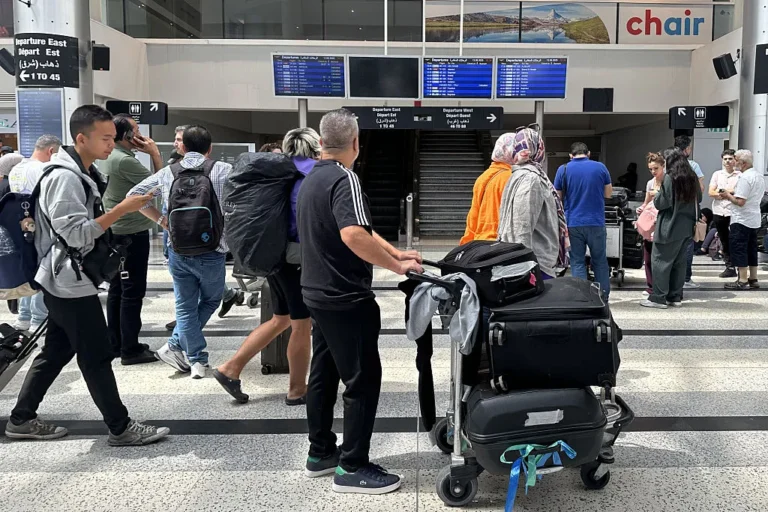Air travel across the Middle East was thrown into disarray on Friday following Israeli airstrikes on Iranian military and nuclear sites, prompting widespread airspace closures and the cancellation or diversion of thousands of flights.
Following Israel’s targeted strikes on Iran’s nuclear facilities, missile production centers, and high-ranking military officials, key air corridors over Iran, Iraq, and Jordan were shut down, forcing airlines to reroute or suspend operations across the region. Israel declared the offensive a major step in its efforts to stop Iran from acquiring nuclear weapons.
In Israel, Ben Gurion Airport in Tel Aviv was shut down as a precaution, with the country’s air defense systems placed on high alert amid fears of Iranian retaliation.
Major carriers including Air France-KLM, Ryanair, Wizz Air, Delta Air Lines, and Israel’s national airline El Al suspended flights to and from Israel. Delta extended its Tel Aviv service suspension through the end of August, while Wizz Air said all affected routes would be redirected for at least 72 hours. Israeli airlines—including El Al, Israir, and Arkia—began relocating planes out of the country for safety.
FlightRadar data showed vast no-fly zones over Iran, Iraq, and Jordan, with planes rerouting through Saudi Arabia and Egypt. Eurocontrol estimated around 1,800 Europe-bound or outbound flights were affected on Friday, including over 650 cancellations.
The Middle East has become a critical air corridor for flights linking Europe and Asia, especially as Russian and Ukrainian airspace remain restricted due to the war in Ukraine. The latest disruption poses serious logistical and economic challenges for global aviation.
The fallout from the conflict also hit airline stocks hard. Shares in British Airways’ parent company IAG dropped 4.6%, Delta Airlines fell 4%, and Ryanair lost 3.5%. Analysts warned that surging oil prices in the wake of the Israeli strikes could further strain airline operations, driving up jet fuel costs.
Iran has officially closed its airspace until further notice, state media reported, compounding the regional aviation crisis.
Air India, which uses Iranian airspace for its Europe and North America routes, announced that several long-haul flights—including those from New York, Chicago, Vancouver, and London—had either been diverted mid-flight or returned to their points of origin.



























